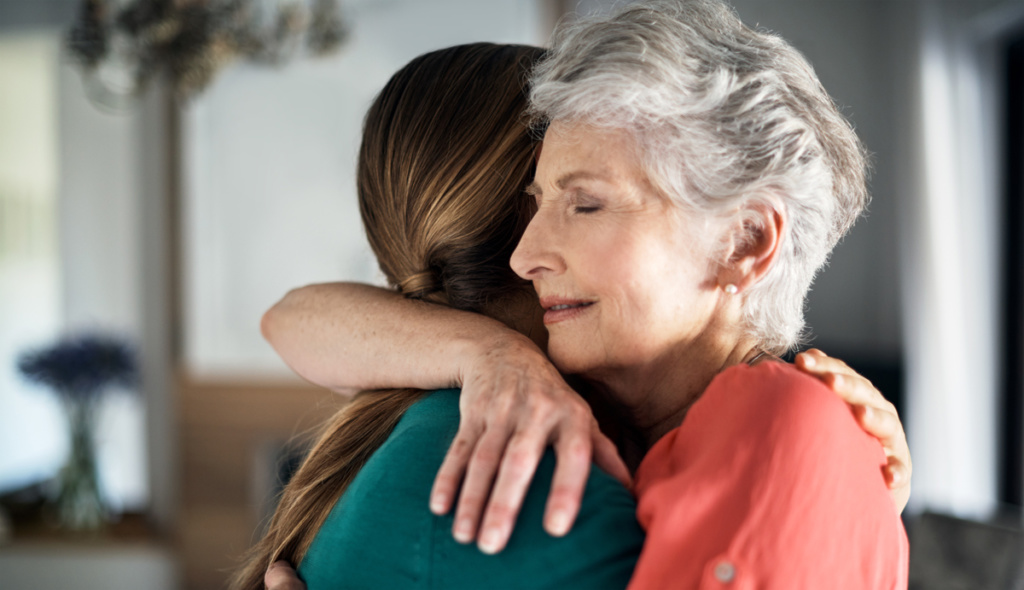“This will be my first Mother’s Day without my son,” I said sadly, on a recent visit to my nearly 80-year-old mother. “You don’t know what that feels like.”
My mother looked around at photos of her six children and eight grandchildren, none of whom live nearby, and said, “Of course, honey. I’m sorry. It must be so hard.” And then I believe she may have rolled her eyes.
I was glancing around when it hit me. “I know what will make me feel better!” I said. “I’ll paint your kitchen!”
It has become clear that when I am sad or anxious at this point in life, absent the ability to smoke, drink, or even sleep well, I renovate. My husband has warned neighbors that if they like their décor, they should lock their doors when our daughter leaves next year.
I left her house that day already planning the return painting trip, and realized on the drive that of course my mother knows how it feels when children leave home. Every single one of us lives somewhere else.
In fact, when I went to college at 18, I never lived home again—and never gave it a second thought. I made my Sunday-night phone calls reasonably regularly, and even if I skipped a week or two, it was no big deal. I was fine. They’d hear if I wasn’t. It quite literally never occurred to me that my mother might be heartbroken when her children left home.
And yet, when my son went to college in the fall, I often wandered aimlessly through Wegmans thinking, “What’s wrong with you people? How can you be shopping? DON’T YOU KNOW MY SON IS GONE?!” The void in my life, in our home, left by his absence seemed unfillable. Certainly the sharpness of that pain has dulled as the school year has worn on, but the fact remains that I am, in a way, grieving.
It’s a conflicted feeling, this grief, because everything is as it should be. He’s doing what we raised him to do: to go out and live his life. We knew from day one that those little people cocooned in our arms would someday spread their wings and fly.
I just wasn’t prepared for the loss I would feel by doing exactly what I was supposed to do. There was never a chapter in the books about “What to expect when your oldest child leaves and you have to walk by his bedroom door every day and hope he’s OK.”
I do what I always do, what I’ve always done, when I’m feeling lost: I turn to my mother. So even though our roles have changed somewhat through the years—I feel the need to take care of her now, rather than vice versa—she is still the one who makes me feel safe, that everything will somehow be all right. And she continues to remind me through her quiet strength and infinite patience that the parent-child relationship remains steady even as life compels its change.
That I now feel what she’s felt for all these years has given our relationship new meaning. I get it now, how lonely those first years after we left must have been, how excited she is when we call, and how just hearing our voices, she says, can brighten her week.
When my son went to college in the fall, I often wandered aimlessly through Wegmans thinking, “What’s wrong with you people? How can you be shopping? DON’T YOU KNOW MY SON IS GONE?!”
What’s more important is that she knows that I get it now, and we can share that experience: the growing up and spreading wings of our children. And I am grateful every day that she’s here to share it with me.
I can’t expect my kids to understand the depth of my feelings any more than my mother could have expected it from me. But maybe someday they’ll visit me after their children have left home for the first time, and I will comfort them, as though they are the first parents to ever experience that grief. We’ll chuckle when they realize that I do, in fact, understand exactly what they’re feeling. And I’ll know just what will make them feel better.
I’m sure by then my kitchen will need a fresh coat of paint.





